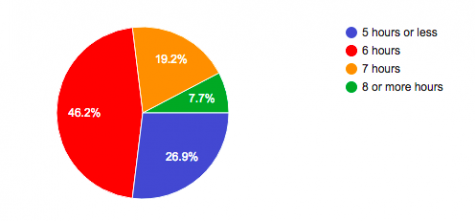Student Time After School
With students reporting that their workload outside of school is increasing and teachers struggling to captivate students who are too tired in class to participate in some cases, every student’s use of time after school is becoming increasingly important not only for maintaining students’ health, but also maintaining a healthy classroom environment.
“Sometimes I feel that teachers don’t really understand all of the responsibilities we as students have after school,” senior Spencer Asselin said. Spencer coaches his own soccer team and also works a couple days after school to save up money for college.
In a recent survey of collected responses from freshmen, sophomore, junior, and senior students, about 58% of students reported that they receive over 3 hours of homework a night on average. This statistic may not be shocking on its own, but with 58% also reporting that they have less than 2 hours to complete this work, the problem becomes much more apparent.
The majority of students have more homework to do every night than they have time for. Some might say that if a student needs more time to complete a task, they can, and should, just ask the teacher for an extension.
This idea is great in theory, but often times, students have been denied the needed time.
“A lot of them say no because they want to get the grades in as quick as possible,” senior Brendan Coccio said.
Another huge factor in student health and well being outside of school is the amount of sleep students get a night. A staggering 73% of students surveyed say that they get 6 hours of sleep or less every night on average.

This lack of sleep is a culmination of students getting home increasingly late from after-school activities and having to complete in most cases more than three hours of work before they can even think about resting.
This leads to steadily increasing stress levels, as is reported by over 95 percent of students.
“A lot of the time I have to take a break from certain activities to get work done,” senior Ian Holmes said.
One way the administration has tried to combat this is through “homework-free” weekends. This would certainly decrease the stress level of students, but according to the survey, many teachers don’t adhere to this rule. Just under 90% of the survey respondents reported that teachers do not adhere to the homework-free rule of long weekends.






![Freshman Grace Gallagher listens to Taylor Swift as she does some homework. She says her favorite of the singers songs to listen to during homework is “Labyrinth” because, “it’s a very relaxing song that gets [her] thinking.”](https://hhspress.org/wp-content/uploads/2023/11/Taylor-Swift-Photo-600x410.jpg)

